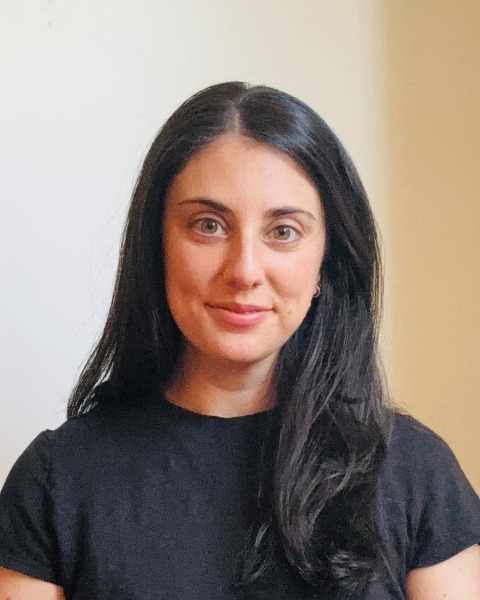Oral Presentation - 15 minutes for each presentation
Technology and Communications
G5. Oral Session: Innovative Health Education: Web-Based Curricula, Technology in Sexual Health, and Building Accessible Systems
G5.03 - Oral: Building an Accessible Health Education Ecosystem: Key Insights from Hospital for Special Surgery (HSS)
Friday, April 18, 2025
8:45 AM - 9:00 AM PST
Location: Gallerie II/III, 1st Floor
Area of Responsibility: Area III: Implementation
Subcompetencies: 2.3.4 Adopt, adapt, and/or develop tailored intervention(s) for priority population(s) to achieve desired outcomes., 3.2.4 Deliver health education and promotion as designed.
Research or Practice: Practice
Subcompetencies: 2.3.4 Adopt, adapt, and/or develop tailored intervention(s) for priority population(s) to achieve desired outcomes., 3.2.4 Deliver health education and promotion as designed.
Research or Practice: Practice

Claudia Zurlini (she/her/hers)
Manager, Programs and Digital Content
Hospital for Special Surgery
Brooklyn, New York, United States
Presenter(s)
Learning Objectives:
At the end of this session, participants will be able to:
- Identify and describe three tailored interventions used to enhance education and self-management for priority populations with musculoskeletal conditions.
- Analyze ways to implement at least two key components of HSS's model in their other organizations, ensuring the delivery of programs to effectively engage populations and address barriers to access.
- Learn about the importance of musculoskeletal health education for community and patient populations.
To ensure accessibility, we use a multipronged approach that includes a customized, user-friendly online platform for varied community needs, partnership with community organizations to extend access, and low-cost options with financial assistance. These strategies empower community members who possess a range of technical literacy skills to actively engage in their health. Gain actionable insights to implement similar models in your organization, promoting health literacy and accessible education for all.
Detailed abstract description: Musculoskeletal conditions are the leading cause of disability worldwide, affecting approximately 1.7 billion people and resulting in pain, mobility limitations, reduced work ability, and decreased quality of life (WHO, 2022). Self-management strategies and patient education are vital for treating and preventing these chronic conditions, especially in underserved areas and communities where access to orthopedic and rheumatology specialists may be limited. Given the current healthcare landscape and rapid advances in digital technology, public health educators must create trusted, effective, accurate, and accessible virtual education opportunities for all.
In response, Hospital for Special Surgery (HSS) developed a comprehensive educational ecosystem aimed at empowering patients and community members to manage musculoskeletal conditions through accessible virtual resources, including livestreamed and recorded webinars, virtual workshops and exercise classes, and short videos. Designed with orthopedic experts, our programming provides timely, accurate, and easy to understand education while ensuring equitable access for underserved populations. Programs are available weekly and on-demand, focusing on education and self-management of musculoskeletal and related conditions.
To ensure equitable program access, we use a multipronged approach. We utilize digital media and a customized online platform (vFairs) to create a user-friendly experience that accounts for the digital divide and accommodates diverse community needs across the age spectrum, including older adults with limited digital literacy. We employ mobile-friendly designs, user testing, technical support, and online tutorials. We meet individuals where they are by collaborating with community organizations that serve underserved groups, such as older adults, and posting video content on sites like YouTube. Finally, we offer free or low-cost programs, and financial assistance to reduce financial barriers to joining programs.
Through this multipronged approach, we have reached nearly 4,000 participants and garnered 8 million views in 2024, received positive feedback from participants, and seen improved health outcomes. Participants reported increased knowledge (89%), self-management skills (88%), high satisfaction (92%), and willingness to recommend to others (89%). Qualitative feedback highlights the ease of accessing online programs, appreciation for the access to expert education and the variety of program offerings, and an enhanced ability to manage their condition.
This comprehensive approach enables all community members to actively participate in their health, regardless of access limitations. By implementing a robust system and leveraging technology, we’ve improved accessibility, allowing HSS to remain a trusted source of orthopedic and health information. Attendees will gain actionable insights to replicate these models, promoting accessible education opportunities for all.

